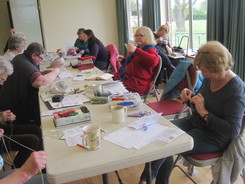 The day after Anna McDowell's interesting talk about the history of Dorset buttons she kindly taught a group of Guild members the various techniques to enable us to create our own buttons. Everybody was given a pack which included the metal ring, thread and the instructions to make a Dorset "cartwheel" button. I was surprised to learn that you used one length of thread and, to begin with, I found 3 1/2 yards quite difficult to handle without getting into knots! Our second button was the Daisy pattern which was worked on a larger metal ring but this had a staggering 5 1/2 yards. We all managed with some results better than others! The final button we were shown was called the "singleton" and for a group of embroiderers this button opened up a great opportunity to express ourselves. By the end of the day, everybody had at least two buttons and some speedy people even had three!
Thank you Anna for a most enjoyable day. Report by Ros
0 Comments
 Anna McDowell started her talk by explaining that Dorset buttons started as a love story. A soldier, Abraham Case went to the continent in 1600s and brought back this technique of making buttons. When he returned he went to Wardour Castle and fell in love with a local girl and they set up the Dorset Button industry. 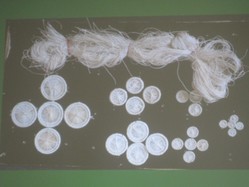 High tops were the first to be made from a disc of sheep’s horn, fabric and thread. Dorset Knobs came after along with the Blanford cross wheel and various other designs. The business grew rapidly as a Cottage industry with women and children working in their own homes and in 1730 Abraham’s grandson Peter took over the company and it is thought introduced metal rings. John Clayton joined and organised it as a proper industry. Anna showed us a record sheet from the Blanford Workhouse which showed what a profitable business it was. In 1793 it was recorded that 5d per gross was paid for the buttons and 4000 people in and around Shaftesbury were involved and 3000 around Blanford. In 1812 people were paid 9d per day to work on the land at harvest time but they could earn 12 – 18d per day making buttons.  Men of fashion including Beau Brummel would wear up to 24 shirts a week all done up with Dorset buttons so the industry thrived. The buttons were made in neutral colour thread and dyed after to match a ladies dress or blouse. In 1812 Benjamin Saunders patented the first mechanised button machine and this heralded the beginning of the end for the hand-made button industry. Anna’s interest began when she became chair of the Gold Hill Museum in Shaftesbury and since then she has tried to bring the Dorset Buttons into the 21st century demonstrating the making of traditional and contemporary buttons. Anna has a website which gives details of the history, she gives workshops and undertakes commissions for making Dorset buttons for period costumes.
On Monday we enjoyed our annual Ploughman’s lunch. Usually we have a guest speaker so this was an opportunity to catch up with friends and to hear what they have been up to. The hall looked very spring like with the tables decorated with colourful cloths and lovely flowers. After lunch we were shown a presentation from the Embroiderers Guild which explained the history of the organisation and a number of textiles which have either been collected by or donated to the Guild over the years. There were items from the 16th C and from all over the world. Below is a selection from the collection. The branch has been asked to donate money towards the conservation of these items so everyone was asked to contribute threads, fabrics, magazines and books to be sold and the money raised will go towards this request. Report by Ros
Embroiderers Guild collection images taken from their presentation. Vivien Prideaux’s workshop this month was entitled “Japanese Stencilling”. The group was first shown a vat of indigo dye and Vivien explained it was a mixture of henna, lime and indigo. So we could see the creation of a vat she measured the ingredients on some scales and stirred it. We were then shown how to make stencils and two pastes which acted as resists and then it was play time. Some people cut their own stencils and some used pre cut designs. We then put the stencil on our fabric and used a credit card to scrape the resist over the stencil. The fabrics were then left to dry. By mid afternoon we had all a number of pieces of fabric ready for the final stage which was to dip it in the indigo vat. Vivien was not happy that the vats were creating the right strength of colour for us to dye our materials so it was decided that we would all do some quick test samples and agreed to postpone the workshop for a few months. We can now look forward to stage two at the end of September. Report by Ros
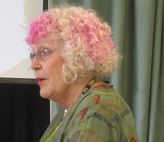 This month’s speaker Vivien Prideaux introduced us to a name that few members were familiar with, Alec Walker. Born in Yorkshire in 1889 Alec was given a rundown mill by his father and he started producing Vigil silk. Kay Earl had been a student in Newlyn in Cornwall and responded to an advert for a designer. He was so impressed with this area he decided to continue producing silk in the north but the design and manufacture of garments was moved to Cornwall. In 1918 Alec and Kay married. In 1920 they founded the couture company, Crysede which became very successful. Alec Walker was invited to go to Paris and was introduced to Raoul Dufy and Ossip Zadkine. Influenced by their designs he transformed his own paintings into textiles. The business continued to expand so they brought in Tom Heron (father of painter, Patrick Heron) as Manager and the company moved to the Island at St Ives. They were the first company to offer mail order, opened retail shops and sold their designs at Liberty's. Sadly, in 1929 Alec left the company with health issues and Tom continued for another 10 years when Crysede ceased trading. It was re-branded as Cresta silks. I was requested not to use Vivien's images so the majority of the above have been taken from the internet.
Report by Ros Bryony's talk was entitled The Textile Menagerie and she describes herself as a Textile Sculptor and it is an apt description when you see the wonderful textile animals she creates and hear how she does it. Coming from a family of artists, Bryony was always encouraged to create but her degree in silver jewellery making seems a far cry from the work she does now. Trips to India as a jewellery buyer led to an interest in antique fabrics especially saris and kantha work which Bryony began to collect. A seaside exhibition with a friend resulted in 'Flossie' a life size donkey made with old prices of wood for legs and a covering of scraps of old fabrics. Building and improving on this Bryony continued making life sized fabric animals using recycled textiles often furnishing fabrics, especially William Morris designs and velvets. As mothers often sat their children on the larger figures Bryony realised they had to be strong so she uses cast iron rod, heavy duty sculpture wire and wood for the skeleton which is covered with sheeting and pillow filling is used to form muscle shape. This is then covered with scraps of fabric stitched in place, layering of textiles give the impression of feather on the birds. Duffle coat toggles carved down make a good beak, false eyelashes look very realistic on deer and false fingernails cut into strips make very convincing claws. All Bryony's figures, ranging from birds, guinea pigs, dogs, pigs and deer are life size and have names usually suggested by the facial expression, tilt of head or attitude. Hover your mouse pointer over the images below to discover the names of the animals! Bryony gave workshops in Australia last year and is due to return there next year and also to New Zealand to give more talks and workshops, she also manages to fit in classes in this country. Bryony gave us a fascinating and informative talk; it was lovely to see some of her menagerie on screen and meet others in person. Thank you to Christine Hill for this report and the lovely photos. Ros
On 23 January I attended the Marlborough Embroiders Guild workshop on how to make a summer garden lampshade with our tutor Nikki Vesey-Williams. Nikki was demonstrating the technique first created by Marna Lunt. It was an extremely enjoyable day with Nikki's teaching being very relaxed and giving all sorts of useful tips about free machine embroidery, such as the appropriate needle for the type of thread used, how to ensure that the thread runs smoothly when running through the machine and also how to ensure that the bobbin is correctly tensioned or lessened off depending upon the texture that is wanted to achieve, amongst other useful details. Firstly we decided how tall we wanted our lampshades to be and also whether they would be used for a table lamp, or hung from a pendant light. This would then give an idea as to how we would have the inner workings of the lampshade set up. We used craft vilene for the base, then used green chiffon material in layers to form the base layer of the shade, giving the impression of grass, fields, hills etc These are bonded together with bondaweb. Once adhered together, a yellow blow pen was used to give an impression of sunrise or sunset and a blue one to denote the sky at the top of the shade. Once the pen ink had dried, we could then set to using a variety of threads and free machine embroidery techniques on the sewing machine to make a set of grasses, foxgloves, daisies and cornflowers on our shades. As we did not want to rush this aspect of the embroidery, we were encouraged to develop the rest of this work at home when we had more time to devote to creating a beautiful work of art. Nikki then went on to demonstrate how we would then make up the shade using double sided tape, lining it with a fine fabric to cover the stitches and give a professional finish. She also showed how we could cover the top and bottom frame with braid to finish off the lampshade. Apologies for delay in posting details of this workshop. Ros
Thanks to Claire Tubbs for the report and photos. To start the New Year Helen Brown from the Bristol Museum & Art Gallery spoke to the Guild about the collection of textiles they have assembled over the years. Helen started her talk by explaining that she works part time in the Applied Arts Department and her role is to catalogue and record their textiles. Their collection covers samples from all over the world going back to the 1570’s. The main source of textiles was from Agnus Fry’s collection of 260 pieces which she gave to the Museum in the late 1940’s and Helen showed us correspondence between Agnus and the curator setting out how she would like the pieces displayed. Agnus came from a large well travelled family (well known for their confectionary business) and was given textiles to add to her collection on their return home. A lot of the examples came from the Balkans and showed brightly coloured work using a variety of fabrics, threads and stitches. In addition to this collection there were some 19thC baby’s bonnets, parasols made of lace, church vestments, some embroidered gloves, examples of bead work and a Japanese fireman’s kimono. In time Helen said she hoped the collection could be made available online for people to look at because, unfortunately it is not currently on display. It is possible however to make an appointment for a private viewing. Report and photos by Ros
At Marlborough & District Embroiderers’ Guild each Christmas we celebrate with a “bring and share” lunch and a “surprise” speaker. This year we celebrated our 40th Ruby Anniversary with a four day exhibition in April and we wanted to end with a grand finale. About a year ago our Programme Secretary, Vernice asked if Jan Beaney and Jean Littlejohn would join us as our “surprise” speakers and to give the after lunch talk. Just look at this "bring and share" spread! A big thank you to everyone for preparing such a delicious meal and to my fellow Committee Members for their hard work in decorating the hall and clearing up after and of course to Vernice for asking Jan & Jean to speak to us. The Committee were sworn to secrecy so our guests and the remainder of our branch members, numbering over sixty, were thrilled to see displays of Jan and Jean’s work and to hear them talk about how they have collected ideas and recorded them over the years. They talked about their various trips abroad and how landscapes in Israel, Australia, the Grand Canyon and New Mexico had brought inspiration together with fossils on Charmouth beach, pot pourri jars, house renovations, craters on planets, the clock in St Mark’s Square in Venice and even the slime in Steve’s pond! Below is a selection of photos of their work which they kindly allowed me to take and some of the images from their presentation. Sorry some of them are a bit skew! Click on the first image to enlargen and then you can scroll through to see the details of their exquisite work. We were very grateful to Jan and Jean for making our Christmas meeting such a memorable one.
Report and photos by Ros Juliette Orton’s day school on Monday was a resounding success: we all benefitted from her inspirational packs and flexible approach to complete a number of pieces (refreshingly unusual to be able to complete pieces in the course of the day).
The stitch and tear process was relatively simple but can achieve strikingly diverse effects : many people had a chance to practise their machine-embroidery skills while others worked on complex pieces incorporating a variety of techniques. Everyone, whatever their skills-set, was pleased with their progress. Report and photos by Clare R Thank you Clare! Ros |
AuthorInformation in this blog is provided by branch members who have attended the meeting, workshop or event. Categories
All
Archives
October 2017
|
|
Marlborough & District Branch is a member of the Embroiderers' Guild, the UK's leading crafts association
* The Embroiderers' Guild website -https://embroiderersguild.com/ * The Guild Facebook page - https://www.facebook.com/embroiderersguild/ * The Guild Pinterest pages - https://uk.pinterest.com/theembroiderers/ |
design by chrisse
|
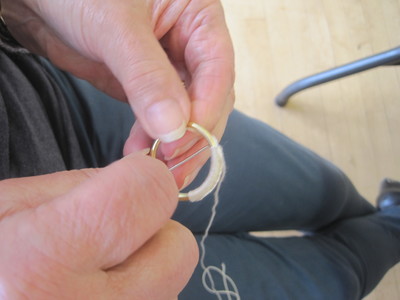
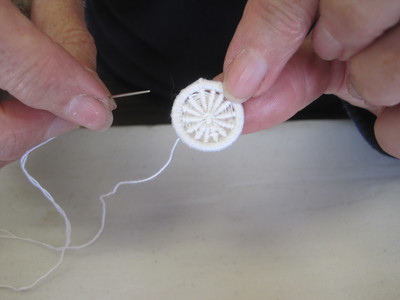
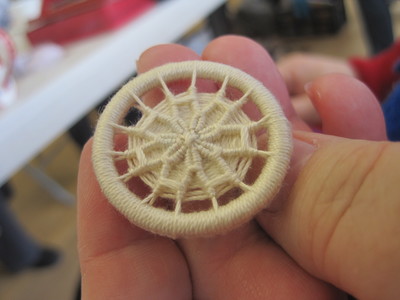
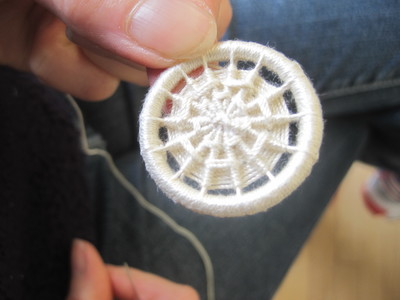
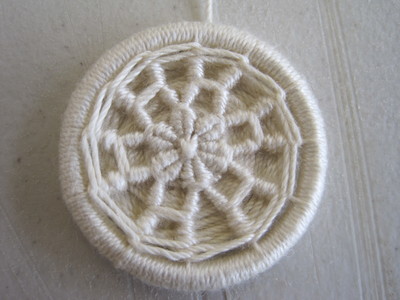
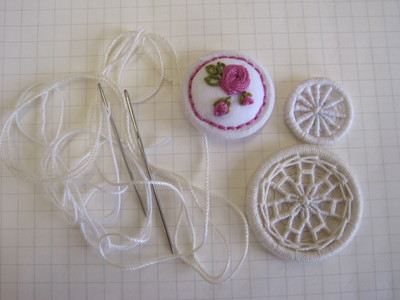
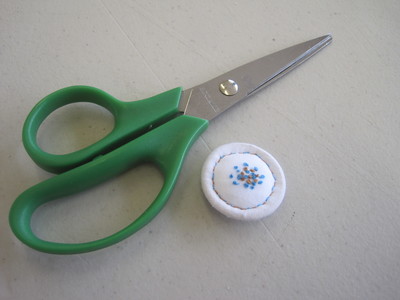
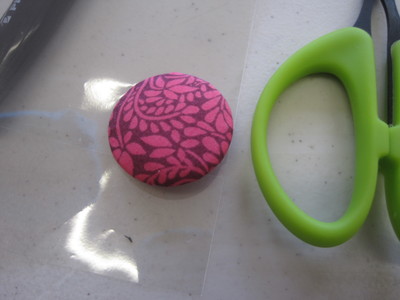
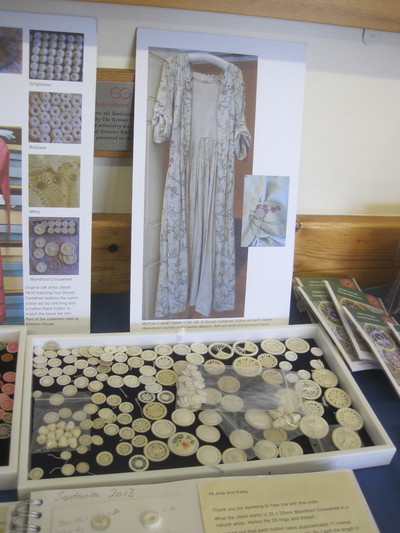
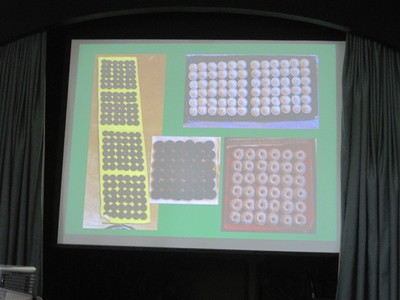
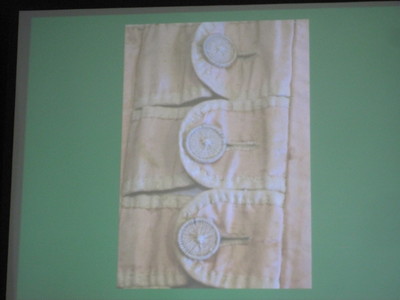
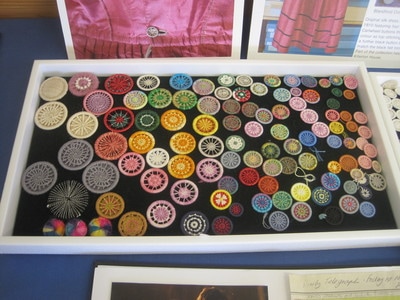
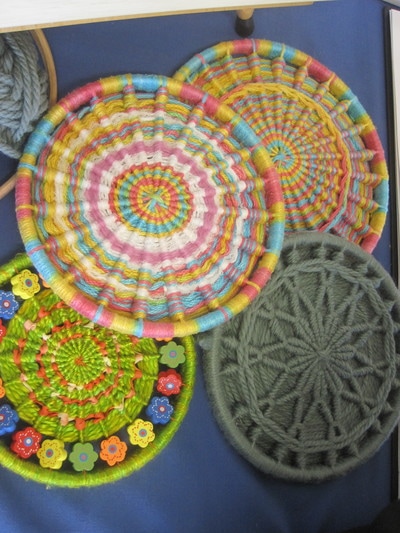
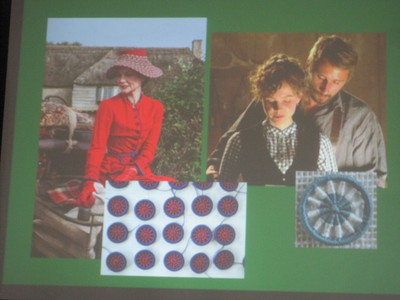

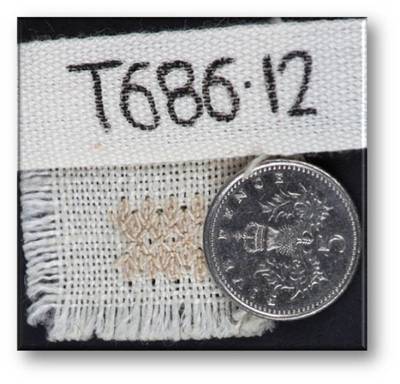
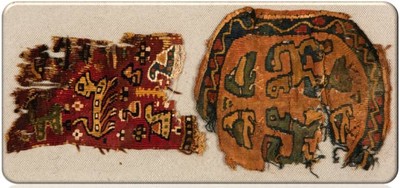
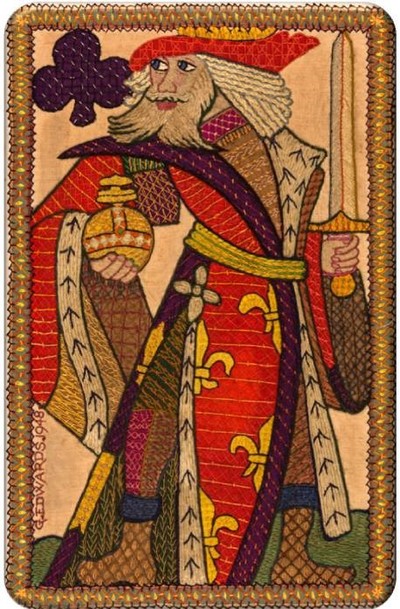

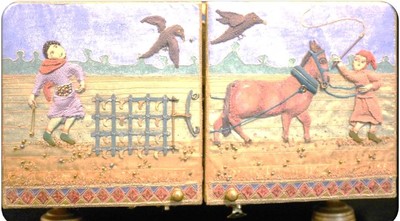
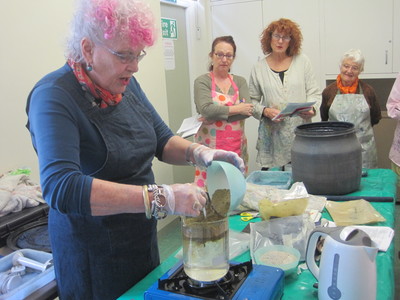
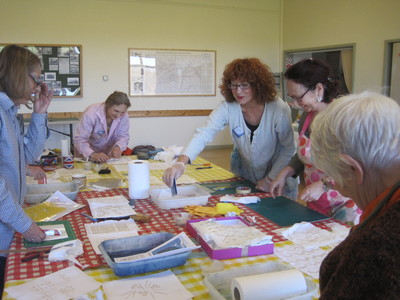
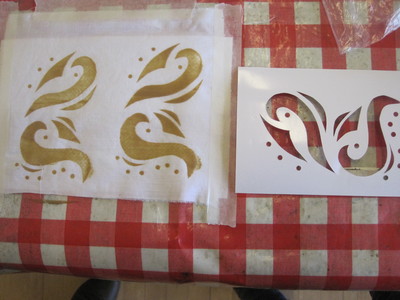

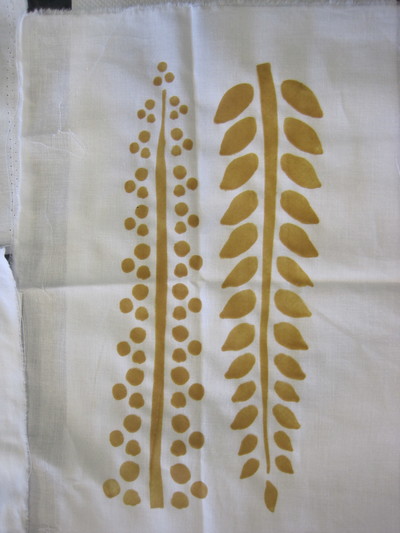
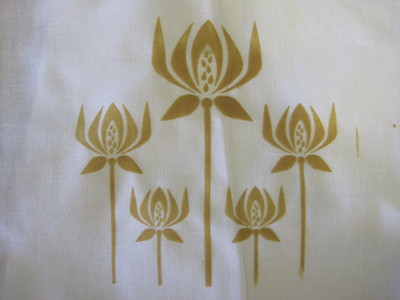
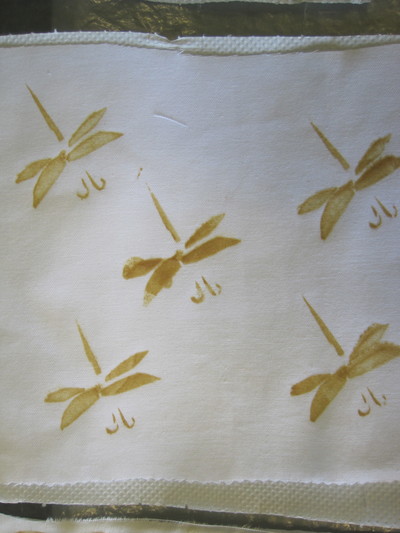
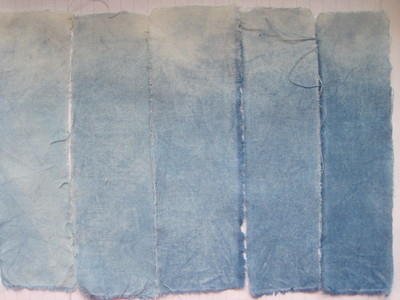
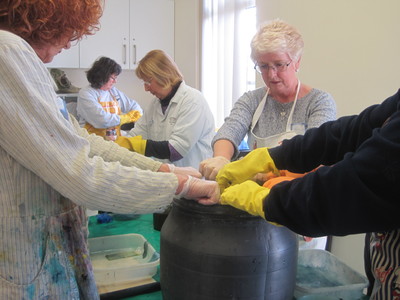

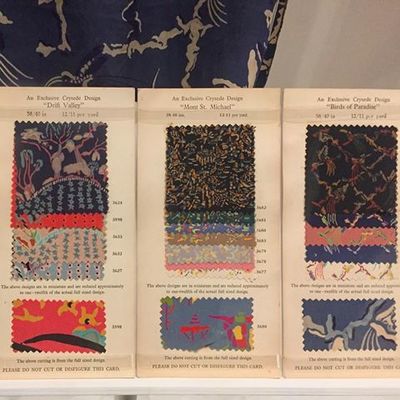
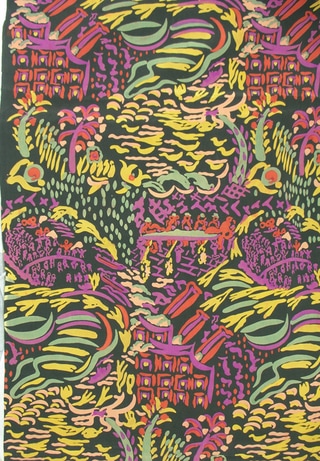
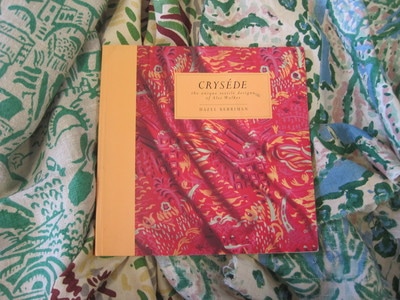
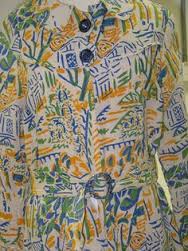
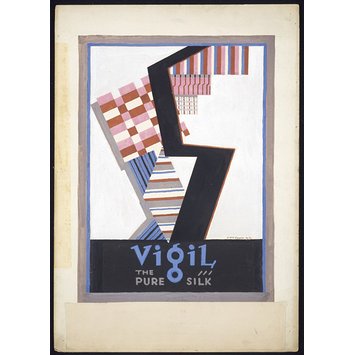
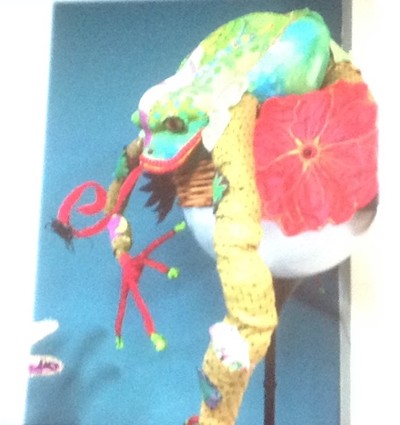
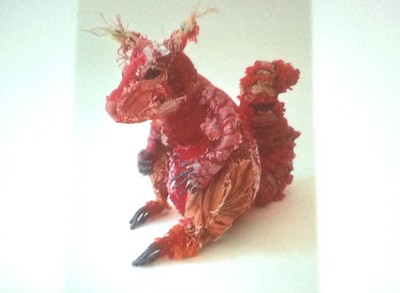
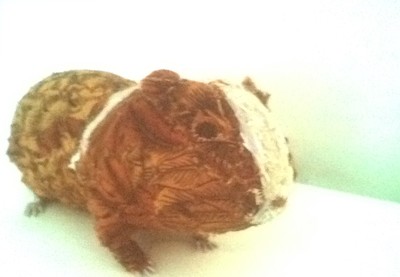
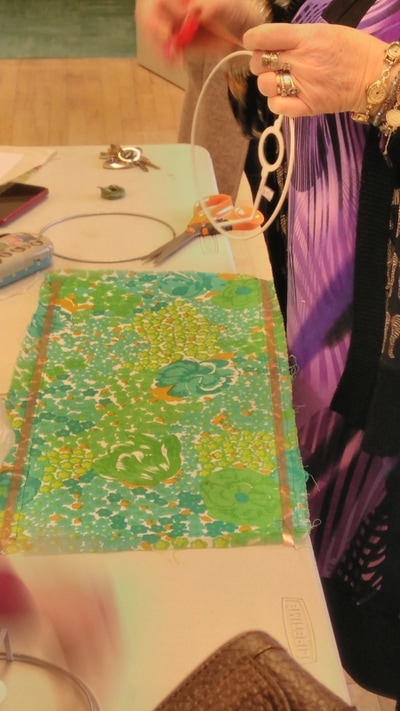
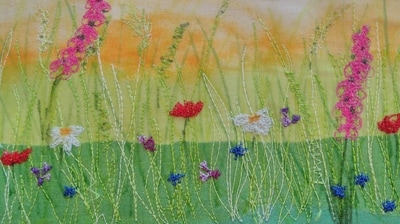
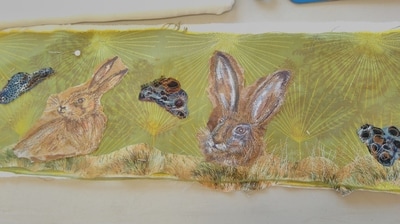
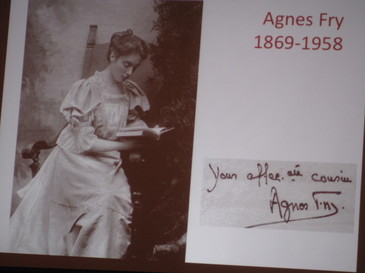
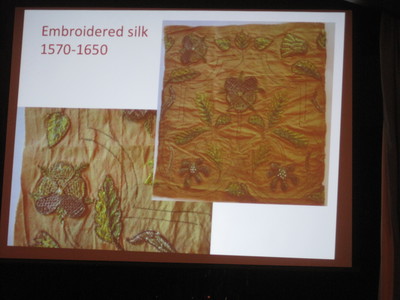
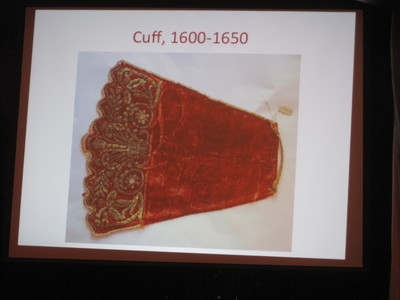
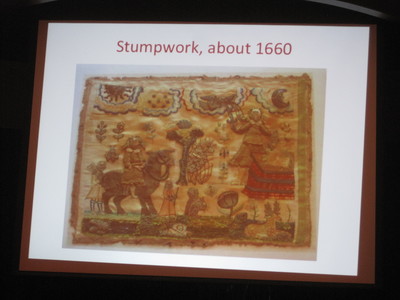
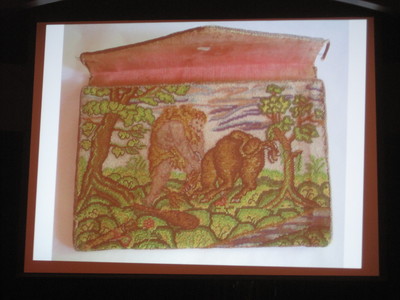
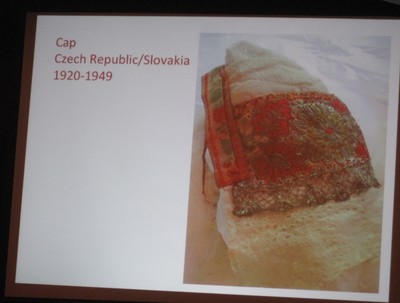
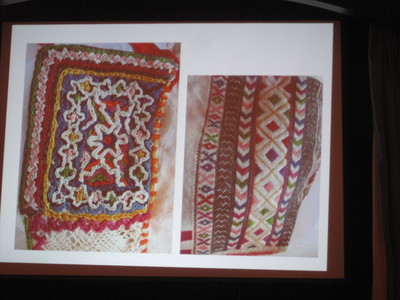
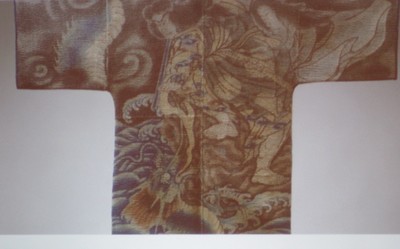
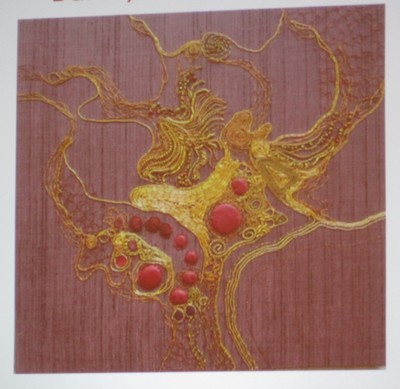
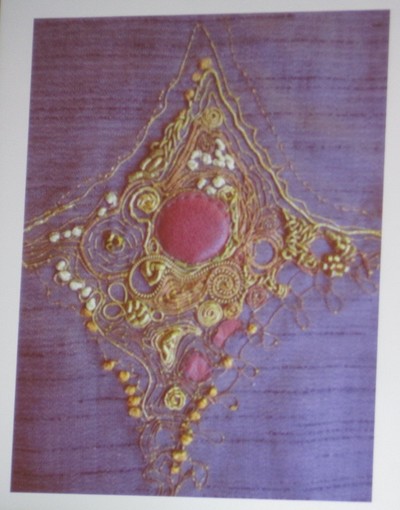
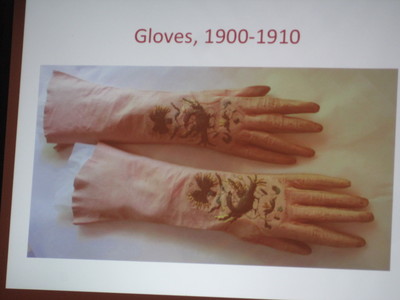
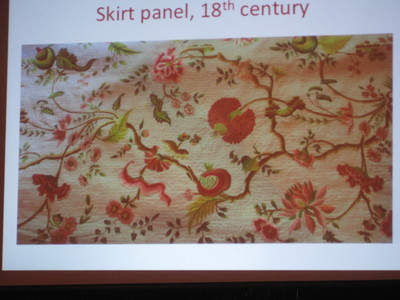
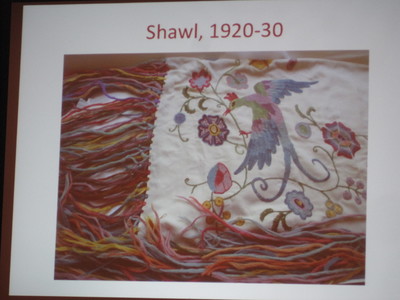
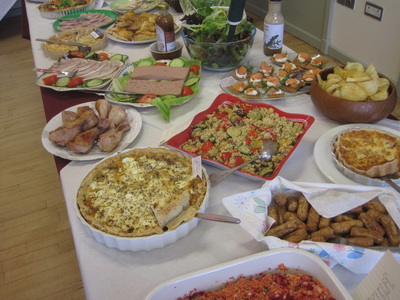
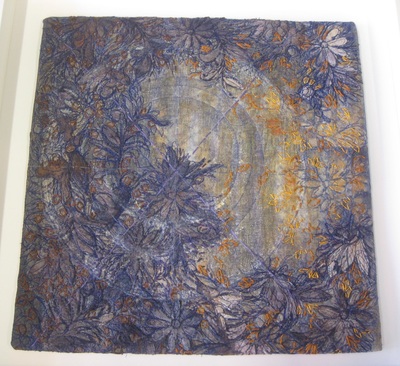
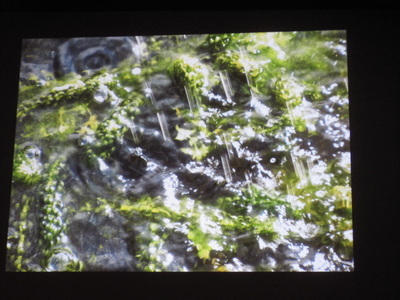
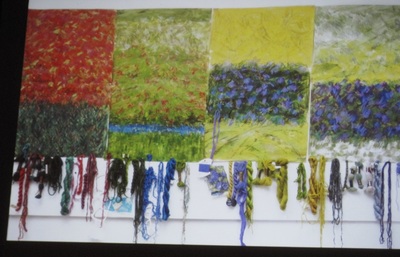
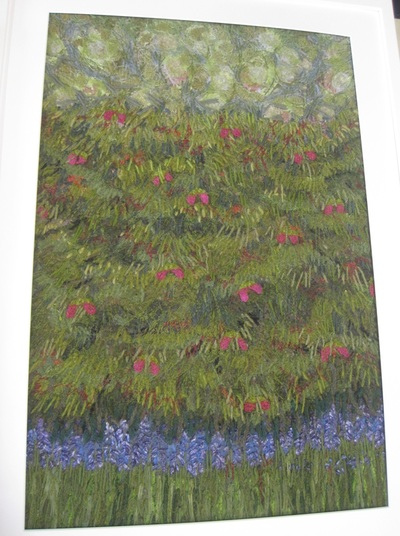
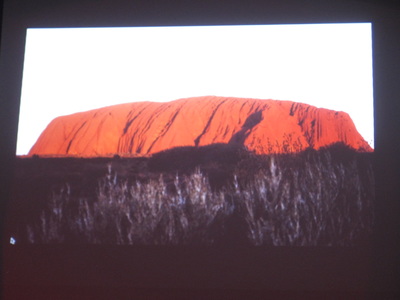
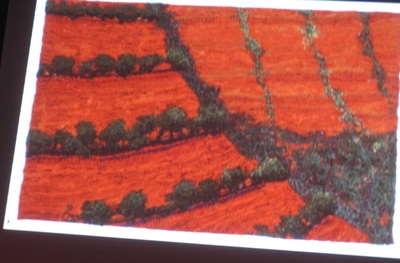
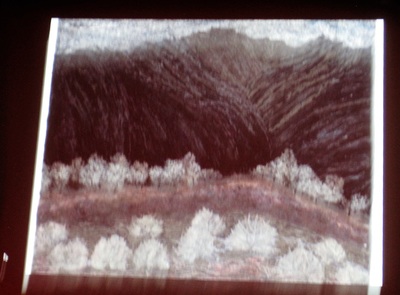
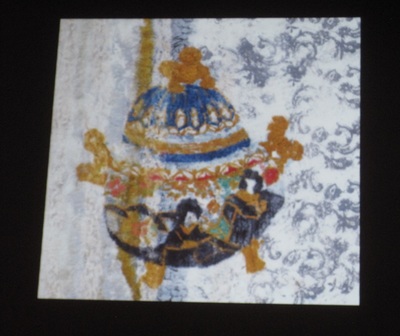
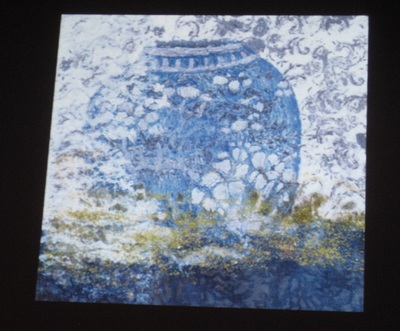
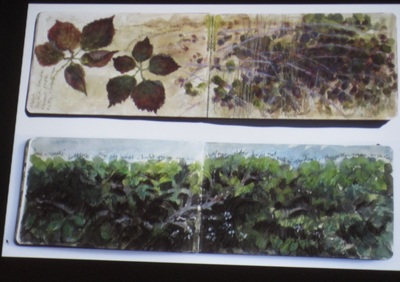
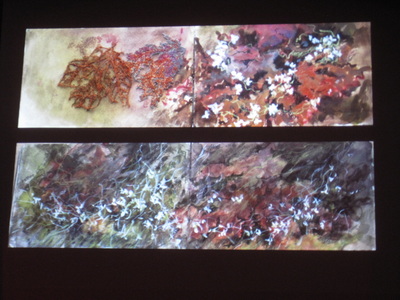
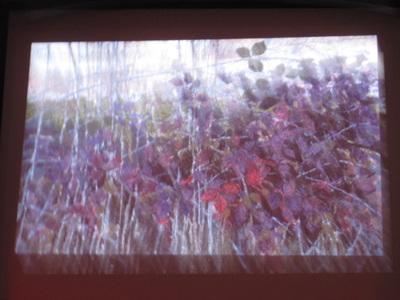
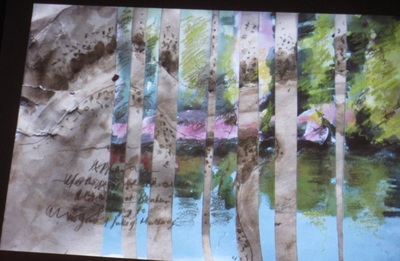
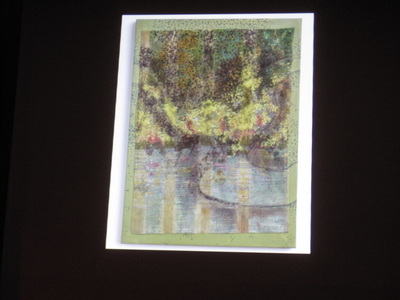

 RSS Feed
RSS Feed
